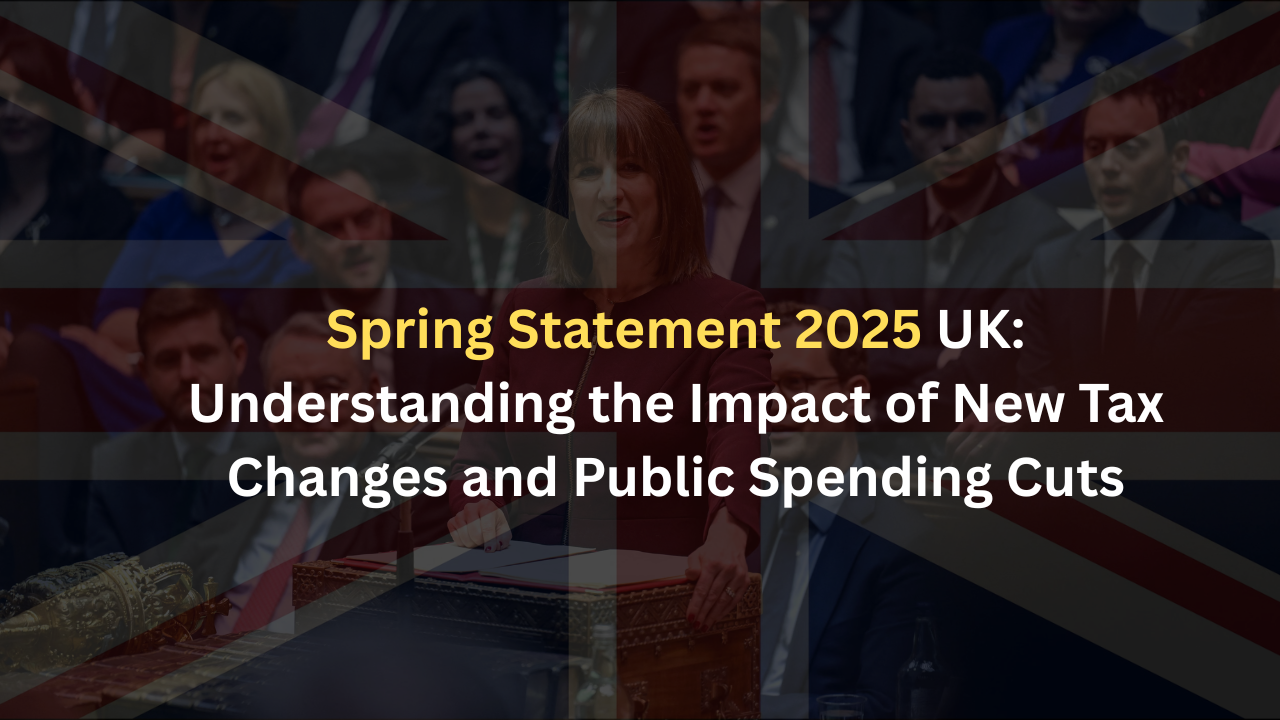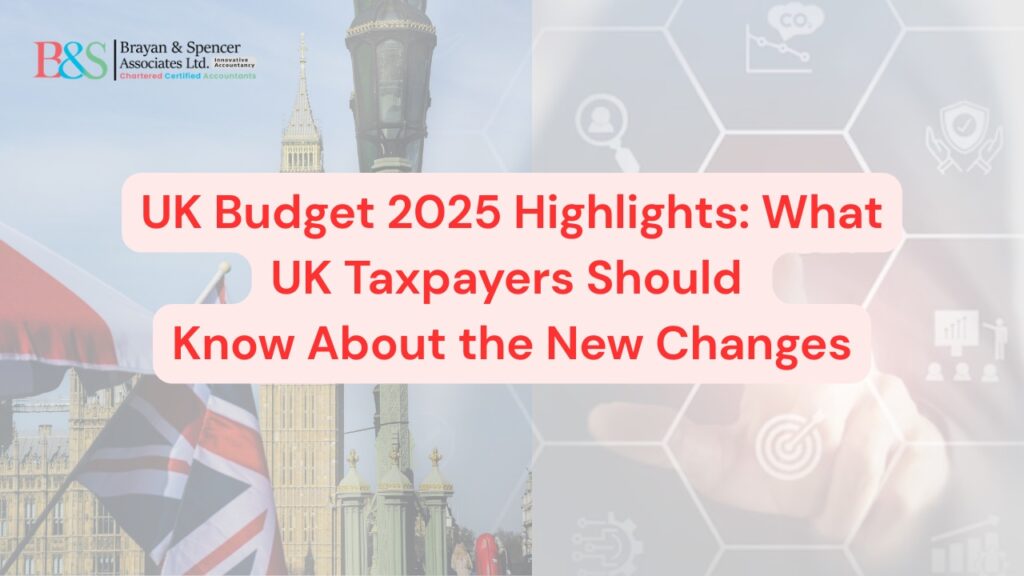The Spring Statement 2025 brought significant updates to the UK’s economic landscape, focusing on financial stability, public spending, tax changes, and compliance measures. This post provides a detailed yet easy-to-understand overview of the key announcements, helping individuals and businesses plan effectively.
Public Spending Reductions: A Step Towards Fiscal Responsibility
The UK government has announced measures to reduce public spending, aiming to create a more efficient and cost-effective public sector. Key reductions include:
- Overseas Aid Reduction: The budget for overseas aid has been cut to 0.3% of the national income, prioritising domestic economic stability over international assistance.
- Government Operating Cost Savings: Operating costs across government departments will be reduced by 15%, contributing to a savings target of £2 billion.
- Universal Credit Payments Adjustment: New applicants receiving health-related payments under Universal Credit will see their benefits reduced by half. This change is expected to make the welfare system more sustainable.
- Long-Term Spending Cuts: Day-to-day government spending is set to decrease by £6.1 billion by 2030, focusing on improving efficiency and cutting unnecessary expenses.
Tackling Tax Evasion: Strengthening HMRC’s Powers
To combat tax evasion and improve tax collection, the government is investing in advanced technology for HMRC. This investment aims to recover an estimated £7.5 billion through increased tax enforcement efforts. The initiative is expected to ensure compliance and fairness in the tax system.
Making Tax Digital (MTD): A Phased Approach
The government is moving forward with “Making Tax Digital” (MTD) to streamline tax processes and ensure accuracy. The rollout plan includes:
- April 2026: Mandatory MTD compliance for self-employed individuals and landlords earning over £50,000.
- April 2027: The threshold lowers to £30,000.
- April 2028: MTD becomes mandatory for those earning over £20,000.
These changes will require businesses and individuals to adapt their tax processes, ensuring accurate digital records and timely submissions.
Tax Changes Effective from 2025/26
The Autumn Budget 2024 introduced tax changes effective from April 2025, impacting capital gains, inheritance tax, pensions, and more.
Capital Gains Tax (CGT): Increased Rates
The Spring Statement 2025 confirmed changes to CGT rates:
- Basic-Rate Taxpayers: CGT rate rises from 10% to 18%.
- Higher-Rate Taxpayers: CGT rate increases from 20% to 24%.
- Business Asset Disposal Relief (BADR) and Investors’ Relief: Rates will rise to 14% in April 2025 and 18% in April 2026.
- Annual Exemptions: The exemption remains unchanged at £3,000 for individuals and £1,500 for trusts.
Employers’ National Insurance Contributions (NIC)
Employers will face higher NIC rates from April 2025:
- Rate Increase: From 13.8% to 15%.
- Lower Secondary Threshold: Payments now begin from £5,000 instead of £9,100.
- Increased Employment Allowance: The allowance rises to £10,500, benefiting smaller businesses.
Stamp Duty Land Tax (SDLT): Higher Costs for Additional Properties
Changes to SDLT from April 2025 include:
- Increased Surcharge: The surcharge on additional properties increases from 3% to 5%.
- Lower Nil-Rate Threshold: The threshold is reduced to £125,000.
Major Changes to Non-Domiciled Status
From April 2025, the UK tax system will shift from domicile-based to residency-based taxation, impacting high-net-worth individuals:
- End of First-Year Exemption: The 50% foreign income exemption for new residents will be removed.
- Offshore Trusts Impacted: Existing inheritance tax protections for offshore trusts will be withdrawn, with temporary transitional arrangements in place.
Inheritance Tax (IHT) and Pensions Reforms
Changes to IHT and pensions from 2026 and 2027 include:
- Inheritance Tax on Pensions: Inherited pensions will be subject to IHT from 2027.
- Frozen IHT Threshold: The £325,000 threshold remains unchanged until 2030.
- Agricultural Property Relief (APR): Relief limited to 50% for assets above £1 million from April 2026.
- Reduced Business Property Relief (BPR): AIM shares relief drops from 100% to 50% from April 2026.
National Minimum Wage (NMW): Supporting Workers
From 2025, the minimum wage increases:
- Over 21s: £12.21 per hour.
- Under 21s: £10.00 per hour.
- Apprentices: £7.55 per hour.
Business Rates Relief Changes
The Spring Statement 2025 reduces rate relief for retail, leisure, and hospitality sectors:
- Rate Relief Reduction: Relief drops from 75% to 40%.
- Cap on Relief: Capped at £110,000 per business.
Recommendations: Prepare for the Future
The Spring Statement 2025 introduces impactful changes that require businesses and individuals to take proactive steps. Here are some recommendations:
- Review Tax Planning Strategies: Businesses and individuals should seek professional advice to manage increased costs and compliance obligations.
- Adopt Digital Solutions for MTD: Ensure smooth transitions by implementing digital record-keeping solutions.
- Optimise Business Structures: Consider restructuring to benefit from allowances and reliefs.
- Prepare for NIC and CGT Increases: Plan for higher contributions and review tax-efficient investment options.
The Spring Statement 2025 aims to strengthen the UK economy while balancing the need for fiscal responsibility. By understanding and adapting to these changes, businesses and individuals can better navigate the evolving tax landscape and secure financial stability.




